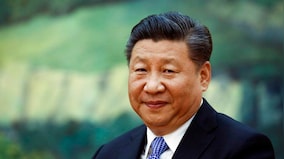President Joe Biden will reimpose tariffs on hundreds of goods imported from China, the US Trade Representative (USTR) announced. This move is part of a broader strategy to increase duties in strategic sectors and protect American manufacturing.
The US will let tariff exclusions expire on about half of the 400 products that had previously been spared, according to the USTR. However, 164 exclusions will be extended through May of next year. To facilitate a transition, all exemptions set to expire at the end of this month will be extended through June 14 for those not being renewed.
Friday’s action means certain goods will maintain exclusions from import tariffs, including animal-feeding machinery, DC electric motors, blood pressure monitors, and thermostats designed for air conditioning or heating systems not connected to the internet.
The exclusions were initially set to expire on May 31, but the USTR announced an extension through June 14 to facilitate a transition period. Certain exclusions will be extended until May 31, 2025, to support efforts to shift sourcing out of China or in cases where alternative sources remain limited.
However, many products will once again face tariffs, including 102 categories where no public comments requested further extension or where there was no evidence that further extension would aid in shifting sourcing out of China. These product categories include garage-door openers, switches used in motor vehicles, printed circuit board assemblies, electric motorcycles, natural graphite, and various duffel and messenger bags.
President Joe Biden announced plans earlier this month to increase tariffs on an array of Chinese imports, including electric vehicles as part of a broader push to support domestic manufacturing. Trump imposed tariffs in 2018 and 2019 on thousands of imports from China valued at some $370 billion at the time, after a Section 301 investigation found that China was misappropriating U.S. intellectual property and coercing U.S. companies to transfer sensitive technology to do business.
With inputs from agencies.









)
)
)
)